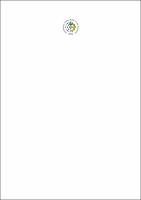Use este identificador para citar ou linkar para este item:
http://rima.ufrrj.br/jspui/handle/20.500.14407/15644| Tipo do documento: | Dissertação |
| Título: | Educação ambiental e a troca de saberes |
| Título(s) alternativo(s): | Environmental education and knowledge exchange |
| Autor(es): | Silva, Cristina Maria Alves da |
| Orientador(a): | Salles, Cristiane Martins Cardoso de |
| Primeiro membro da banca: | Salles, Cristiane Martins Cardoso de |
| Segundo membro da banca: | Santos, Ana Maria Marques |
| Terceiro membro da banca: | Elicher, Maria Jaqueline |
| Palavras-chave: | critical environmental education;schools;environmental educational activities;educação ambiental crítica;escolas;praxis pedagógicas ambientais |
| Área(s) do CNPq: | Ciências Humanas |
| Idioma: | por |
| Data do documento: | 20-jul-2016 |
| Editor: | Universidade Federal Rural do Rio de Janeiro |
| Sigla da instituição: | UFRRJ |
| Departamento: | Instituto de Florestas |
| Programa: | Programa de Pós-Graduação em Práticas em Desenvolvimento Sustentável |
| Citação: | SILVA, Cristina Maria Alves da. Educação ambiental e a troca de saberes. 2016. 114 f. Dissertação (Mestrado em Práticas em Desenvolvimento Sustentável). Instituto de Florestas/Instituto de Ciências Humanas e Sociais - CPDA, Universidade Federal Rural do Rio de Janeiro, Rio de Janeiro, RJ, 2016. |
| Resumo: | Esta pesquisa teve por objetivo analisar o processo de aprendizado a partir das praxis pedagógicas ambientais e as trocas de saberes que ocorreram entre 55 estudantes das turmas do 6° e 7° ano de uma escola pública estadual no município de Duque de Caxias/RJ. Considerou-se a realidade vivida pelos mesmos ao longo do ano letivo de 2015, visando compreender o processo de formação e desenvolvimento de uma educação ambiental crítica e reflexiva. Com base no conceito de Organizador Prévio da Teoria da Aprendizagem Significativa, de David Ausubel (1980), foi aplicado, inicialmente, um questionário junto aos estudantes com a intenção de compreender que conhecimentos tinham e o que pensavam sobre o meio ambiente, sobre seu bairro e sua vizinhança. Após a aplicação do questionário, foi desenvolvido um conjunto de atividades pedagógicas voltadas para a educação ambiental crítica, a finalidade era refletir e registrar em uma caderneta individual de campo o conhecimento construído e trocado em sala de aula. Após a aplicação das atividades pedagógicas, voltou-se a trabalhar com o questionário inicial. Desta vez, com a intenção de avaliar se havia novos conhecimentos e em caso de resposta positiva quais. A comparação entre os questionários aplicados antes e depois das práticas voltadas a uma educação ambiental que incluísse a realidade vivida pelos estudantes permitiu que se observasse o cotidiano dos mesmos e os pontos que devem ser abordados para a construção de uma educação ambiental reflexiva, ativa, que permita o questionamento das relações existentes entres os seres humanos que vivem em determinado espaço e deles com o ambiente em si, o que significa dizer que os estudantes em questão passam a ser vistos não como meros expectadores, mas como protagonistas de suas vidas e responsáveis por seu ambiente. |
| Abstract: | This research aimed to analyze the learning process from the environmental pedagogical praxis perspective taking into account the exchange of knowledge that occurred between 55 students from the 6th and the 7th grade of a public school located in Duque de Caxias/RJ. To understand the process of formation and development of a critical environmental education we took as a starting point the students’ reality throughout the year of 2015.Based on the concept of the Theory of Meaningful Learning from David Ausubel (1980), firstly, a kind of poll was given to the students. The intention was getting the level of knowledge they had about the environment and what kind of thought they had about it. We stimulated them to think about their neighborhood as well. After they had answered the questions, we applied a number of educational activities focused on the critical environmental education. No matter the tools, the purpose was always the same: reflect and record in an individual notebook the knowledge built and exchanged in the classroom. After the implementation of these educational activities, the same poll was applied again. That time the aiming was to evaluate whether and which knowledge they had gained, which kind of thoughts and behaviors were built in relation to the environment, to their neighborhood. Then, a comparison of the answers given before and after the activities that included mainly the students’ reality was made. An that point it was observed that it is necessary to take into account the students’ reality in order to develop a critical environmental education, which turns them into active pieces of the changing process instead of keeping them passive. They started wondering how the relationships worked, no matter the parts involved in, so they started seeing themselves as main characters, as people who are responsible for the environment where they were inserted in. |
| URI: | https://rima.ufrrj.br/jspui/handle/20.500.14407/15644 |
| Aparece nas coleções: | Mestrado Profissional em Práticas em Desenvolvimento Sustentável |
Se for cadastrado no RIMA, poderá receber informações por email.
Se ainda não tem uma conta, cadastre-se aqui!
Arquivos associados a este item:
| Arquivo | Descrição | Tamanho | Formato | |
|---|---|---|---|---|
| 2016 - Cristina Maria Alves da Silva.pdf | 4,33 MB | Adobe PDF |  Abrir |
Os itens no repositório estão protegidos por copyright, com todos os direitos reservados, salvo quando é indicado o contrário.

